Thriving Stars panel: women leaders share career wisdom
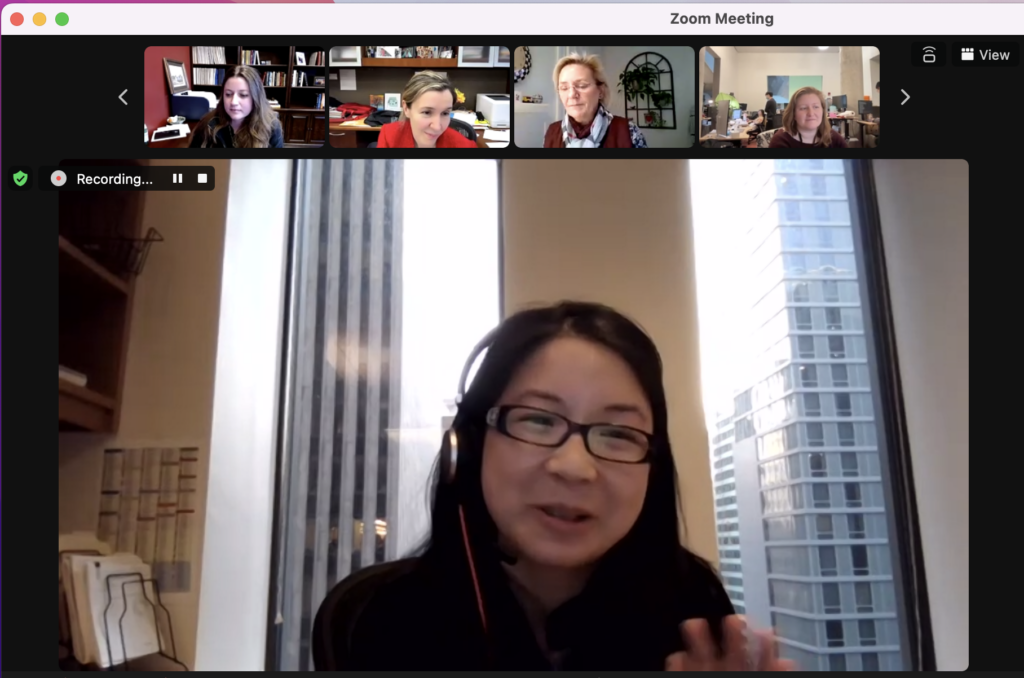 Grace Wang, a litigating high tech patent attorney at Allen and Overy, LLC, shares her insights with an audience of current and admitted students.
Grace Wang, a litigating high tech patent attorney at Allen and Overy, LLC, shares her insights with an audience of current and admitted students. On February 7, 2023, EECS Thriving Stars hosted its second annual career panel, featuring five highly accomplished women with PhDs. The panelists shared their career experiences, learnings, and advice to a community of around 80 current and newly admitted PhD students in EECS. While speaking, the panelists often built off each other’s thoughts, fostering a supportive and welcoming environment.
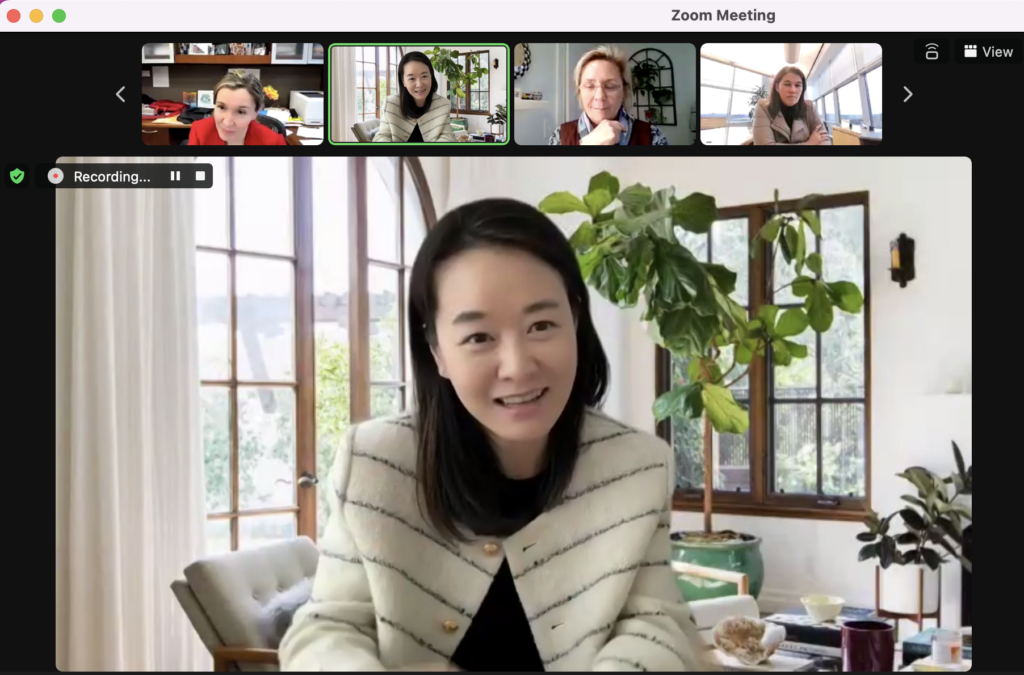
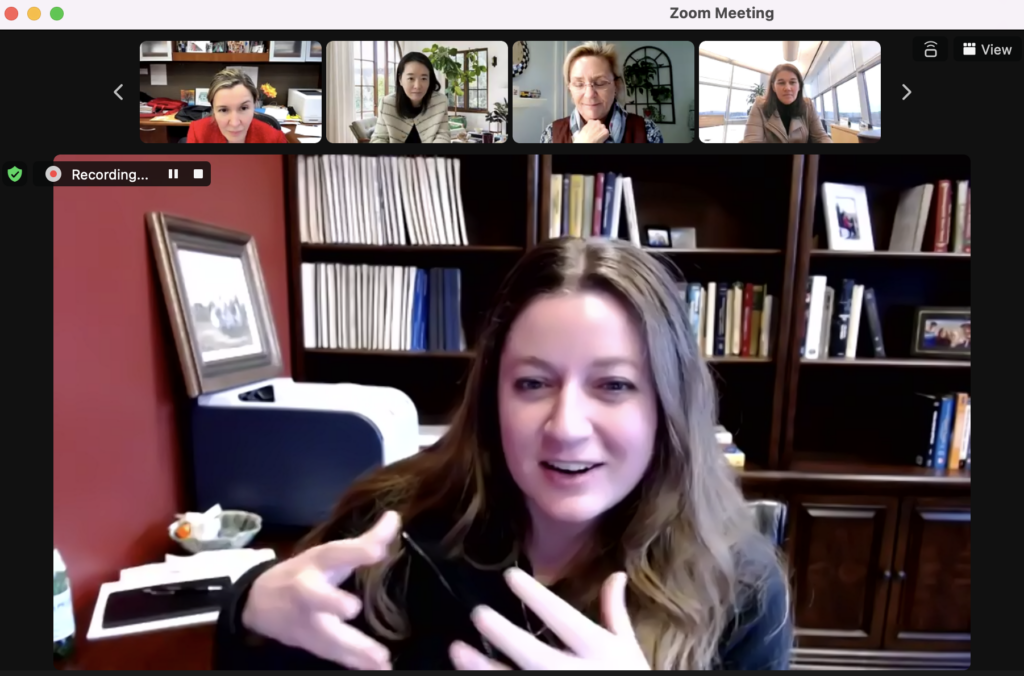

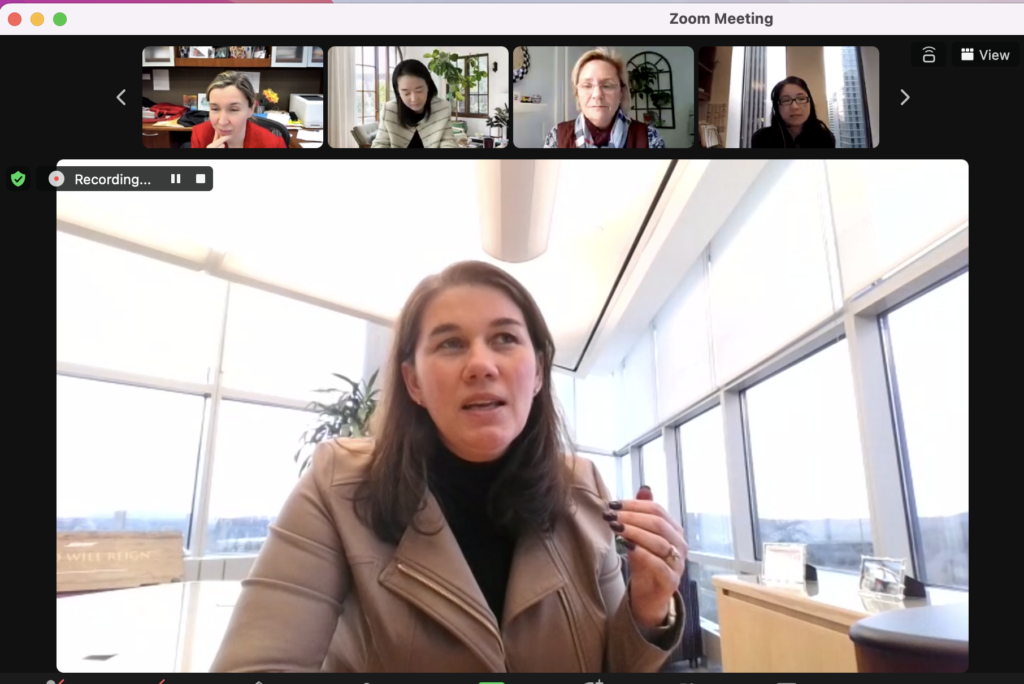
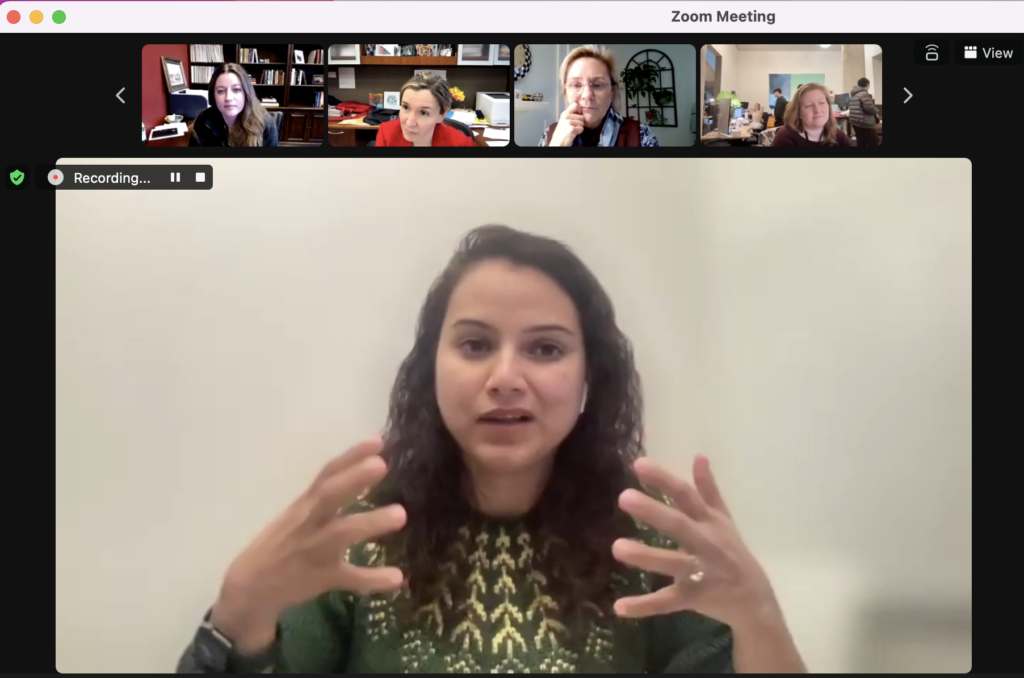
This year’s panelists were: Jelena Notaros, the Robert J. Shillman (1974) Career Development Professor in Electrical Engineering and Computer Science; Neha Sardesai, senior application engineer of education at MathWorks; Lila Snyder, CEO of Bose Corporation; Grace Wang, litigating high tech patent attorney at Allen and Overy, LLC; and Songyee Yoon, president and chief strategy officer of video gaming giant NCSOFT. EECS Department Head Asu Ozdaglar moderated the panel, which was held virtually via Zoom. The event was sponsored by Jane Street Capital.
To start, each panelist shared a glimpse into their working lives. Snyder explained that as CEO of Bose, her responsibilities revolve around building teams and making sure they have the necessary tools to be successful. When things are going smoothly, she takes a step back. “I do everything and nothing all at the same time,” she joked. Yoon, an executive at NCSOFT, echoed similar responsibilities in her job, noting that learning how to work on and build large teams was what drew her to a career in industry in the first place.
Sardesai shared that as an application engineer at MathWorks, she works to empower students and researchers by providing advice on using the MATLAB and Simulink software tools.
Wang, as a litigator, represents tech companies and defends their patents. She spends her days explaining the technology covered in patents to people, often through writing or in the courtroom. While she enjoys the communication aspects of her job, there’s “no better high than coming off a jury trial and getting a decision in your favor,” she said.
And finally, Notaros broke down her responsibilities as a professor into four categories: research, teaching, mentoring, and service. “What I love most [about being a professor] is your biggest output isn’t just your research – it’s also your students,” she said.
The panelists then reflected on how many of the soft skills they learned during their PhD are skills that they still use today. The skills at the top of their list included problem solving and perseverance, especially in situations with lots of uncertainty. Sardesai also emphasized the importance of communication skills, citing the need to communicate technical concepts to people across disciplines in her job. She had picked up this skill from being the only chemical engineering PhD student in an electrical engineering lab.
In the stories they shared, the panelists often attributed their success to the mentors and communities that they’ve had in their careers. For example, growing up, “I never thought I’d get a PhD,” Sardesai said. That is, until she was encouraged to do so by two of her research mentors. Notaros also credited her career to two mentors: a high school teacher who had fueled her interest in teaching and an undergraduate research advisor who had inspired her to pursue her current research field.
Sardesai noted that having a community of women at work also greatly helped her career. During her PhD, she had been the only woman in her subteam and had trouble getting recognition for her work. But, at MathWorks, she’s “lucky enough to be on a team with 50/50 [women and men],” she said, where the women share their experiences and help build each other’s confidence.
Yoon also mentioned often being the only woman in school and work settings. But now, as an executive, she leverages her position to create more diverse communities. “It’s very important for a woman to give other women opportunities,” she said. During her executive tenure, she has promoted eight women into executive positions at NCSOFT. That brings the total to ten, much larger than other similar companies, Yoon said.
Next, the panelists gave advice on work/life balance. Many believe a good approach is to first figure out your own priorities and then schedule your life to reflect them. For example, Wang, Snyder, and Notaros all block off time for their family, but they each reserve different times of the day or week to reflect when they most enjoy family time. Sardesai reminded attendees to also make time for themselves, even if they have a family.
During audience Q&A, the attendees were eager to ask the panelists for advice, especially about their personal situations. One current PhD student in computer science expressed concern that spending a year doing a PhD had put her behind her peers on the industry career ladder. She cited difficulty with getting a management position after graduation, even though these positions are held by many of her peers without PhDs. The panelists reassured her that while it may not look like it right now, having a PhD will benefit her in the long run. “It’s not where you start; it’s where you finish,” Snyder said. “You might have frustration with your first role, but the experience you gained in your PhD will help you accelerate past your peers.”
At the end of the event, the panelists gave parting advice for success in any career path. Notaros shared a practical piece of advice: “one thing that can really help you with research or work is to be organized,” she said. Sardesai recommended attendees to read at least ten minutes every day to broaden their knowledge. And finally, Snyder encouraged people to take risks, whether it be volunteering for a project or talking to colleagues in a different lab. “Throughout my whole career, the people who get the farthest tend to take a step beyond their comfort zone,” she said.
Media Inquiries
Journalists seeking information about EECS, or interviews with EECS faculty members, should email eecs-communications@mit.edu.
Please note: The EECS Communications Office only handles media inquiries related to MIT’s Department of Electrical Engineering & Computer Science. Please visit other school, department, laboratory, or center websites to locate their dedicated media-relations teams.